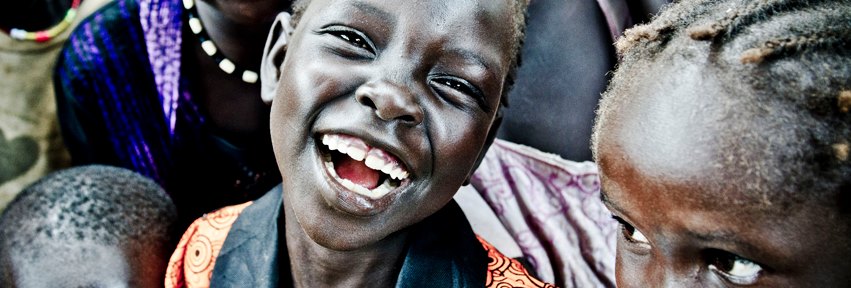
(Photo Credit: Flame International)
By Faith J. H. McDonnell (@Cuchulain09)
Today, prayer for national forgiveness, healing, and reconciliation is taking place in the mosques of South Sudan. It would also seem to be a good time to be thankful for South Sudan’s religious freedom. With all the faults and errors that South Sudan is experiencing in its infancy as a nation (and about which some global observers are eager to highlight), it takes tremendous grace not to reciprocate for the oppression and religious persecution that South Sudanese experienced when under the thumb of Omar al Bashir. But that has never been the intention of either South Sudan’s “Moses” Dr. John Garang, nor of his successor, President Salva Kiir.
South Sudan embraces religious freedom for all, but there are still old wounds from the past that need healing, injuries that need forgiveness. South Sudan’s Committee for National Healing, Peace, and Reconciliation, led by the Most Rev. Daniel Deng Bul, Archbishop of Sudan and South Sudan (Episcopal Church of Sudan) highlights the importance of forgiveness, healing, atonement, and sovereignty for the health of the nation.
- Forgiveness – “is the cornerstone to healing relationships between individuals and communities,” says the Committee’s working paper “The Way Forward.” The definition goes on to say that forgiveness is a “volitional act of giving up anger and resentment and extending pardon to an offending party.” A very important characteristic of forgiveness, often ignored or not comprehended in any secular concept, is that “forgiveness cannot be earned and is not deserved by the offending party.”When it takes place, “forgiveness sets an individual, community or nation free from the burden of anger, pain, hatred, resentment and the desire for revenge.” Forgiveness has the power to change lives. It “transforms societies by releasing them from the wounds of the past.”
- Healing – Once there has been forgiveness, healing can begin. “Healing wounded communities and nation is a spiritual and socio-political process that addresses painful historical memories with an eye toward acknowledgement, grieving, repentance, justice and forgiveness,” according to “The Way Forward.” Healing the wounds of history, it continues, comes when we acknowledge the suffering and injustice of the past.
- Atonement – “The Way Forward” defines atonement as turning from alienation from God, self, and others and finding peace with God that leads to personal transformation. “Atonement means that, ultimately reconciliation is the process of finding peace with God,” the paper continues.
- Sovereignty – Acknowledging the sovereignty of God makes national unity possible, the paper explains, because God is the supreme authority over peoples, communities, and nations.
Psalm 33:12 says “Blessed is the nation whose God is the Lord.” If the people of South Sudan heed the exhortations and advice of the Committe for National Reconciliation and desire to be a nation whose God is the Lord, they will be blessed. With spiritual leaders such as Archbishop Deng, and the encouragement of others from around the world, these values can be built into the DNA of South Sudan.
No comments yet



